

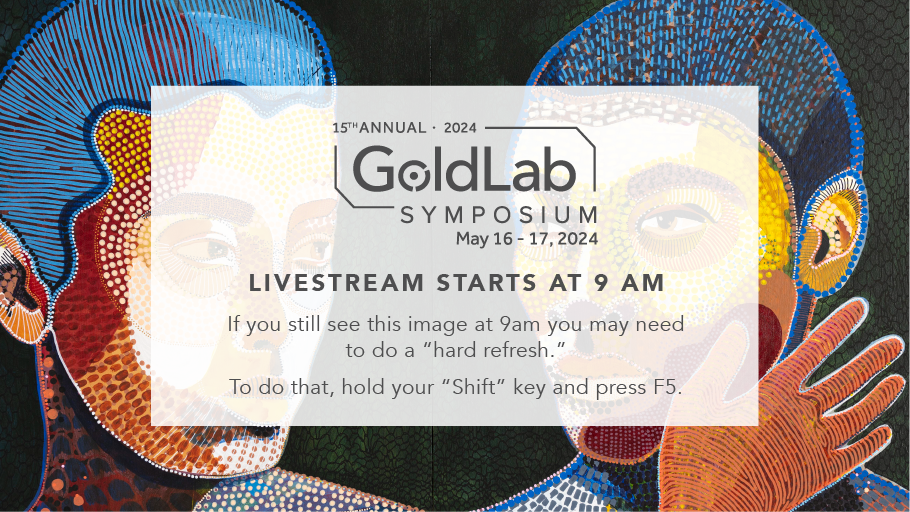
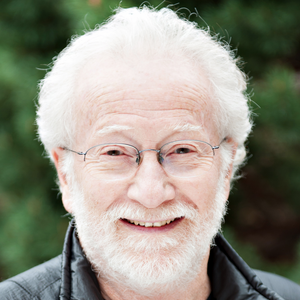
Dr. Larry Gold is the Founder of SomaLogic. Prior to SomaLogic, he also founded and was the Chairman of NeXagen, Inc., which later became NeXstar Pharmaceuticals, Inc. In 1999, NeXstar merged with Gilead Sciences, Inc. to form a global organization committed to the discovery, development and commercialization of novel products that treat infectious diseases.
During his nearly 10 years at NeXstar, Dr. Gold held numerous executive positions including Chairman of the Board, Executive Vice President of R&D, and Chief Science Officer. Before forming NeXagen, he also co-founded and served as Co-Director of Research at Synergen, Inc., a biotechnology company later acquired by Amgen, Inc. Dr. Gold recently became the CEO of Lab79, a new biotech company in Boulder, Colorado.
Since 1970, Dr. Gold has been a professor at the University of Colorado at Boulder. While at the University, he served as the Chairman of the Molecular, Cellular and Developmental Biology Department from 1988 to 1992. Between 1995 and 2013, Dr. Gold received the CU Distinguished Lectureship Award, the National Institutes of Health Merit Award, the Career Development Award, the Lifetime Achievement Award from the Colorado Biosciences Association, and the Chiron Prize for Biotechnology. Dr. Gold was also awarded the 8th International Steven Hoogendijk Prize by the Dutch Batavian Society of Experimental Philosophy in 2018.
In addition, Dr. Gold has been a member of the American Academy of Arts and Sciences since 1993 and the National Academy of Sciences since 1995. He is a fellow of the National Academy of Inventors. Dr. Gold also serves on the Board of Directors for CompleGen, Plato BioPharma, Lab79, Keck Graduate Institute, and the Biological Sciences Curriculum Study.
Dr. Gold established the Gold Lab at the University of Colorado Boulder in 1971. Starting with basic research on bacteria and bacteriophage, the lab shifted its focus to human disease following the invention of the SELEX process in 1989. The Gold Lab today focuses on the utilization of biological and information technology to improve healthcare. Dr. Gold also began holding the GoldLab Symposia in 2010, an annual event that tackles big questions in healthcare. He is determined to change healthcare for the better through teaching, research, and debate among scientists and citizens throughout the world.
Abstract
Abstract coming soon!
Abstract
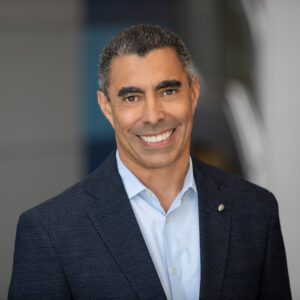 How we conceptualize disease informs how we treat it, as exemplified by approaches to treating diseases of the mind. More than a century ago, Edward Colwes wrote about the importance of steady progress towards a truth, informed by understanding clinical symptoms and the course of disease. The aspiration of using mechanistic insights of disease to guide development of novel therapeutics for neuropsychiatric conditions has been elusive. The neuropharmacological revolution in treating serious mental illnesses occurred in the absence - not because of - scientific advances into the understanding of the brain. Serendipity-based drug discovery helped to transform patient care and left a legacy of important medicines; however, these successes contributed to the codification of categorical diagnoses which were reinforced by the descriptors of drug classes. The field of psychiatry came to view the “map as the territory.” That is, the representation of mental illnesses became ‘ground truths’ to be further refined into ever more precise definitions, without the benefit of biological underpinnings to define this reality. Categorical definitions limited the generation of mechanistic insights and, absent a model for scientific innovation, large pharma exited or significantly scaled back investments in neuroscience therapeutics development. Yet, today, not only are more neuroscience companies forming, but a high proportion of these companies cite ‘precision neuroscience’ as a core part of their strategy. What does this mean for the field and where will we go from here? This presentation reviews the rationale and need for a new conceptual framework for neuropsychiatric research and drug development. By leveraging recent advances in brain imaging, data science and the tools of precision medicine, the field of neuropsychiatry is positioned to evolve a classification system from categorical CNS conditions to biologically informed diseases which could transform diagnostics and therapeutics development for the next century.
How we conceptualize disease informs how we treat it, as exemplified by approaches to treating diseases of the mind. More than a century ago, Edward Colwes wrote about the importance of steady progress towards a truth, informed by understanding clinical symptoms and the course of disease. The aspiration of using mechanistic insights of disease to guide development of novel therapeutics for neuropsychiatric conditions has been elusive. The neuropharmacological revolution in treating serious mental illnesses occurred in the absence - not because of - scientific advances into the understanding of the brain. Serendipity-based drug discovery helped to transform patient care and left a legacy of important medicines; however, these successes contributed to the codification of categorical diagnoses which were reinforced by the descriptors of drug classes. The field of psychiatry came to view the “map as the territory.” That is, the representation of mental illnesses became ‘ground truths’ to be further refined into ever more precise definitions, without the benefit of biological underpinnings to define this reality. Categorical definitions limited the generation of mechanistic insights and, absent a model for scientific innovation, large pharma exited or significantly scaled back investments in neuroscience therapeutics development. Yet, today, not only are more neuroscience companies forming, but a high proportion of these companies cite ‘precision neuroscience’ as a core part of their strategy. What does this mean for the field and where will we go from here? This presentation reviews the rationale and need for a new conceptual framework for neuropsychiatric research and drug development. By leveraging recent advances in brain imaging, data science and the tools of precision medicine, the field of neuropsychiatry is positioned to evolve a classification system from categorical CNS conditions to biologically informed diseases which could transform diagnostics and therapeutics development for the next century.Biography
Bill Martin leads the Neuroscience therapeutic area of Janssen Research & Development, LLC in discovering and developing important new therapies for people living with brain disorders. His role is focused on addressing areas where the greatest unmet needs in neuroscience remain, and where the biggest impacts can be made for patients and society, including serious mental illness (such as treatment-resistant depression and schizophrenia) and neurodegenerative disorders (such as Alzheimer’s disease).
Prior to joining Janssen R&D, Martin co-founded Blackthorn Therapeutics, where he first served as the company’s Chief Scientific Officer and Head of R&D before becoming President and Chief Executive Officer. Blackthorn integrates computational and clinical neuroscience and applies a precision medicine approach to creating novel therapeutics for central nervous system (CNS) disorders. Before Blackthorn, Martin held leadership positions at Theravance Biopharma. He started his career at Merck, contributing to the company’s Neuroscience franchise.
Martin is also a member of the Board of Directors for Brown University’s Carney Institute for Brain Science and has held leadership positions in the Society for Neuroscience, the Alliance for Artificial Intelligence in Healthcare, the American Physiological Society and the International Brain Research Organization. He has published extensively on neuroscience and brain disorders, with more than 75 publications in scientific journals.
Martin received a bachelor’s in Psychology from Swarthmore College and a doctorate in Experimental Psychology from Brown University. He conducted postdoctoral research at the Keck Center for Integrative Neuroscience at the University of California, San Francisco.
Abstract
 Intracellular organelles are relatively autonomous sub-systems within the cell, whose activity and chemical composition reflect the cell’s metabolic state. Metabolism is altered in diseased or aging cells, reflected at the level of specific organelles within them. Often, introducing compensatory changes in organelles can restore cells to normalcy given the intrinsic feedback between cells and their organelles. Nature already targets the delivery of exogenous cargo with organelle-level precision in living organisms as evidenced by invading pathogens as well as endogenous signaling molecules. DNA can be self-assembled into molecularly precise, well-defined, synthetic assemblies on the nanoscale, commonly referred to as designer DNA nanodevices. Over the last decade, Dr. Krishnan’s lab developed a way to target DNA nanodevices to specific cells in vivo, but with organelle-level precision. The first discovery in 2011 revealed that DNA nanodevices could reach organelles called lysosomes in specific cells of live nematodes, where it functioned as a reporter of pH. Until this innovation, it was not at all obvious whether such DNA nanodevices could function inside a living cell without being interfered with, or interfering with, the cell's own networks of DNA control. The team spent 10 years studying the environment within lysosomes. This presentation will explain how lysosomes can be used to control cell state, flip the cell "from baddie to goodie," and turn cold tumors hot in mice.
Intracellular organelles are relatively autonomous sub-systems within the cell, whose activity and chemical composition reflect the cell’s metabolic state. Metabolism is altered in diseased or aging cells, reflected at the level of specific organelles within them. Often, introducing compensatory changes in organelles can restore cells to normalcy given the intrinsic feedback between cells and their organelles. Nature already targets the delivery of exogenous cargo with organelle-level precision in living organisms as evidenced by invading pathogens as well as endogenous signaling molecules. DNA can be self-assembled into molecularly precise, well-defined, synthetic assemblies on the nanoscale, commonly referred to as designer DNA nanodevices. Over the last decade, Dr. Krishnan’s lab developed a way to target DNA nanodevices to specific cells in vivo, but with organelle-level precision. The first discovery in 2011 revealed that DNA nanodevices could reach organelles called lysosomes in specific cells of live nematodes, where it functioned as a reporter of pH. Until this innovation, it was not at all obvious whether such DNA nanodevices could function inside a living cell without being interfered with, or interfering with, the cell's own networks of DNA control. The team spent 10 years studying the environment within lysosomes. This presentation will explain how lysosomes can be used to control cell state, flip the cell "from baddie to goodie," and turn cold tumors hot in mice.Biography
Yamuna Krishnan, Professor of Chemistry at the University of Chicago, has led her group to pioneer the development of DNA-based molecular devices for the study of cell physiology at the nanoscale. This breakthrough has enabled chemical imaging and eliminated decades-old bottlenecks. Krishnan’s achievements have earned her numerous accolades, including the Shanti Swarup Bhatnagar Award for Chemical Sciences, the Infosys Prize for Physical Sciences, and the NIH Director’s Pioneer Award. She was also included in Cell’s 40 under 40 list of scientists shaping current and future trends in biology. Krishnan has co-founded two companies, Esya Inc and MacroLogic Inc, which use her patented organelle-targeting nanotechnology for diagnostics and therapeutics. She serves as an editor for Chemical Reviews and the Journal of Physiology, and is a member of the Scientific Advisory Board of the Max Planck Institute of Cell Biology and Genetics, as well as the Brain Research Foundation (USA)
Abstract
Abstract coming soon!
Abstract
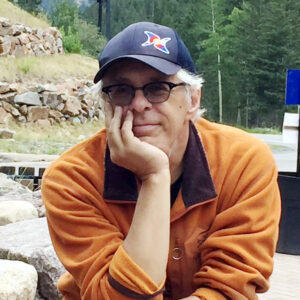 Klymkowsky’s goal for this talk is to illustrate how stochastic (noisy) processes influence all aspects of life and how they can be best introduced to students. Physics is often seen as the model for how science works, with its explanatory power implying that our universe is deterministic. However, many events, such as radioisotope decay, are unpredictable individually. Stochasticity is more prominent and functionally significant in living systems, where complexity is built through evolutionary processes in ever-changing conditions, resulting in a range of emergent behaviors, including consciousness and self-consciousness. The basic living unit, the cell, is particularly susceptible to the effects of stochasticity. Cells typically contain two gene copies and small numbers of regulatory molecules, causing a wide range of unpredictable variations in gene expression, axon firing, and network behaviors that influence the organism's development and behavior. Stochastic variation can explain why identical twins are similar but not identical and how genetic differences influence phenotype, disease susceptibility, and responses to pathogens and drugs. Despite this, our educational system rarely introduces students to stochastic processes' origins and implications, and the myth of genetic determinism influences many scientific discussions. Introducing students to the functionally valuable roles and implications of stochastic processes can place deterministic myths in context. It raises questions about what determinism means if we cannot predict individual behaviors accurately. Developing an appreciation and understanding of the stochastic nature of living things may lead to a more realistic, humane, and hopeful perspective among people.
Klymkowsky’s goal for this talk is to illustrate how stochastic (noisy) processes influence all aspects of life and how they can be best introduced to students. Physics is often seen as the model for how science works, with its explanatory power implying that our universe is deterministic. However, many events, such as radioisotope decay, are unpredictable individually. Stochasticity is more prominent and functionally significant in living systems, where complexity is built through evolutionary processes in ever-changing conditions, resulting in a range of emergent behaviors, including consciousness and self-consciousness. The basic living unit, the cell, is particularly susceptible to the effects of stochasticity. Cells typically contain two gene copies and small numbers of regulatory molecules, causing a wide range of unpredictable variations in gene expression, axon firing, and network behaviors that influence the organism's development and behavior. Stochastic variation can explain why identical twins are similar but not identical and how genetic differences influence phenotype, disease susceptibility, and responses to pathogens and drugs. Despite this, our educational system rarely introduces students to stochastic processes' origins and implications, and the myth of genetic determinism influences many scientific discussions. Introducing students to the functionally valuable roles and implications of stochastic processes can place deterministic myths in context. It raises questions about what determinism means if we cannot predict individual behaviors accurately. Developing an appreciation and understanding of the stochastic nature of living things may lead to a more realistic, humane, and hopeful perspective among people.Biography
Mike Klymkowsky, the son of German and Ukrainian immigrants, is a renowned biologist and professor who has been part of the Molecular, Cellular, and Developmental faculty at CU Boulder since 1983. He holds degrees in biophysics from Penn State and CalTech and has done post-doctoral work at University College London and the Rockefeller University. His research has focused on neurotransmitter receptor structure, cytoskeletal and ciliary organization and function, and developmental signaling systems. He is also passionate about improving science education and has developed the NSF-supported Biology Concepts Instrument and a suite of virtual laboratory activities with his colleagues.
Klymkowsky has collaborated with Professor Melanie Cooper to develop open education resources (OER) course materials in chemistry, organic chemistry, and biology, which incorporate web-based interactive graphical beSocratic activities. These materials aim to help students recognize and apply underlying principles and have been shown to have a positive impact on student engagement and learning outcomes. He has also co-directed CU’s science teacher recruitment and certification program and participated in various education research talks and programs.
Klymkowsky’s contributions to science education have earned him numerous awards and honors, including being named a Pew Biomedical Scholar and a fellow of the American Association for the Advancement of Science. He was also recognized as the 2013 Outstanding Undergraduate Science Teacher by the Society for College Science Teaching and received teaching excellence awards from the Boulder Faculty Assembly and the UC Boulder campus for his contributions to the use of OER course materials. Klymkowsky shares his insights and research findings regularly on his blog, bioliteracy.blog.
Abstract
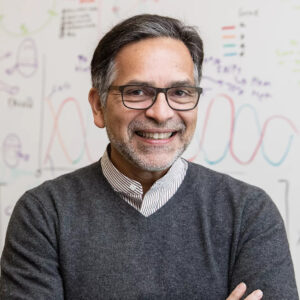 Under normal physiological conditions, the functions of many organs depend on the continuous destruction and renewal of their cells. Equally remarkable is the fact that the adult tissues and organs of many organisms can be fully restored after amputation. In fact, metazoans have evolved a series of renewal and repair mechanisms to respond to both trauma and normal wear and tear. Such mechanisms are under tight regulatory control such that the form and function of tissues, organs, and systems can be maintained throughout life.
Under normal physiological conditions, the functions of many organs depend on the continuous destruction and renewal of their cells. Equally remarkable is the fact that the adult tissues and organs of many organisms can be fully restored after amputation. In fact, metazoans have evolved a series of renewal and repair mechanisms to respond to both trauma and normal wear and tear. Such mechanisms are under tight regulatory control such that the form and function of tissues, organs, and systems can be maintained throughout life. Biography
Alejandro Sánchez Alvarado is the Priscilla Neaves Chair in Biomedical Sciences at Stowers Institute for Medical Research and serves as its Executive Director and Chief Scientific Officer. His laboratory investigates the genetic and cellular control of regeneration and tissue maintenance, identifying dozens of genes and genetic programs involved in these processes. Additionally, his research has revealed insights into the molecular and genetic drivers of both regenerative and degenerative cellular processes that contribute to disease. Sánchez Alvarado’s work has the potential to improve understanding of how higher organisms, including humans, carry out their biological functions.
Sánchez Alvarado is the recipient of numerous honors and awards, and is an elected member of the National Academy of Sciences, the American Academy of Arts and Sciences, and a fellow of the American Association for the Advancement of Science.
Abstract
Abstract coming soon!
Abstract
Abstract coming soon!
Abstract
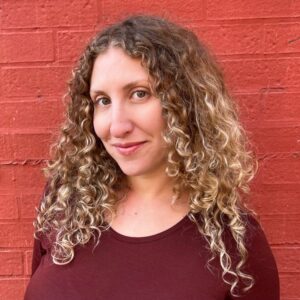 History's feminists and sexual revolutionaries have always had to grapple with an infuriating dilemma: Love and lust are major roadblocks to political clarity. It's never easy to live out dearly held values in one's personal life, a task that's especially messy for heterosexual women fighting for gender equality. The social and biological forces of sex, romance, and heartbreak introduce particularly acute chaos into otherwise coherent activism. This talk will explore how the most radical among us—from anarchist rabblerouser Emma Goldman to the Second Wave's political celibates to Nona's own pro-sex feminist mother, Ellen Willis—have attempted to reconcile personal desire with political conviction.
History's feminists and sexual revolutionaries have always had to grapple with an infuriating dilemma: Love and lust are major roadblocks to political clarity. It's never easy to live out dearly held values in one's personal life, a task that's especially messy for heterosexual women fighting for gender equality. The social and biological forces of sex, romance, and heartbreak introduce particularly acute chaos into otherwise coherent activism. This talk will explore how the most radical among us—from anarchist rabblerouser Emma Goldman to the Second Wave's political celibates to Nona's own pro-sex feminist mother, Ellen Willis—have attempted to reconcile personal desire with political conviction.Biography
Nona Willis Aronowitz is a writer, editor, and author. Her book, Bad Sex, a memoir-social history blend that examines the enduring barriers to true sexual freedom, was published in August 2022. She has a biweekly sex and love advice column for Teen Vogue, and has written for publications like The New York Times, The Cut, Elle, VICE, and Playboy. She co-authored the road-trip book Girldrive: Criss-crossing America, Redefining Feminism with Emma Bee Bernstein. She’s also the editor of two award-winning anthologies of her mother Ellen Willis’s work: a book of her rock criticism, Out of the Vinyl Deeps, and a fatter collection, The Essential Ellen Willis. She’s been to almost every U.S. state but now splits her time between NYC and Tannersville, NY.
Abstract
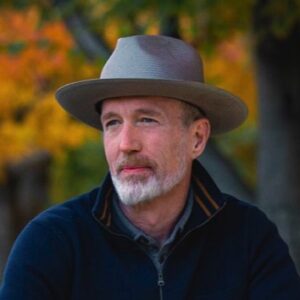 Single living is on the rise. Half of adults in the United States are unmarried and 28% of households in the United States are one person, surpassing the nuclear family as the most common household.
Single living is on the rise. Half of adults in the United States are unmarried and 28% of households in the United States are one person, surpassing the nuclear family as the most common household.Biography
Peter McGraw is a behavioral economist, bachelor, and business school professor at the University of Colorado Boulder. He hosts the podcast Solo-The Single Person’s Guide to a Remarkable Life, and he writes for Single Insights – The Science of Solos, a resource for organizations seeking to better serve their single customers and employees. McGraw is an author of two books: The Humor Code: A Global Search for What Makes Things Funny and Shtick to Business: What the Masters of Comedy can Teach You about Breaking Rules, Being Fearless, and Building a Serious Career. His third book, Solo: Breaking the Rules in a World Built for Two, launches later this year.
Abstract
Abstract coming soon!
Abstract
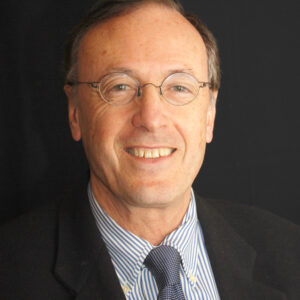 Osteoporosis, characterized by bone loss and skeletal fragility, affects hundreds of millions of patients worldwide, resulting in millions of fractures, reduced mobility, and frequent death. For many decades, the only treatments available aimed at reducing the resorption of bone (anti-resorptives: bisphosphonates, denosumab, estrogens). Treatments that increase bone formation (bone anabolics) have emerged later with the intermittent activation of the parathyroid hormone (PTH) receptor (teriparatide, abaloparatide). But the ability to enhance both mechanisms (anti-resorptive and anabolic) remained elusive until the mutations causing several rare human skeletal diseases were identified within the WNT signaling machinery, uncovering the essential role played by this pathway in the homeostasis of the skeleton. One WNT signaling component, sclerostin, is an endogenous canonical WNT signaling inhibitor secreted locally by the cells residing within the bone matrix, the osteocytes. Sclerostin acts locally to regulate both bone formation and bone resorption. Physiologically, sclerostin expression is regulated by mechanical loading, PTH/PTHrP signaling, and sex hormones. Studies of sclerostin-null mice, or inhibition of sclerostin by anti-sclerostin monoclonal antibodies (romosozumab) revealed the molecular and cellular mechanisms by which sclerostin inhibition simultaneously enhances bone formation and decreases resorption, leading to rapid increases in bone mass. Clinical trials have confirmed that, although the anabolic effects are limited in time, sclerostin inhibition increases bone density markedly and rapidly, decreasing fracture risk in patients with severe osteoporosis. Thus, elucidation of the causes of rare diseases led to a treatment for millions of osteoporotic patients. In turn, these findings are now tested in the treatment of other rare diseases with skeletal fragility (Osteogenesis Imperfecta). Recent advances in the treatment of other rare skeletal diseases may also find applications in more common skeletal conditions.
Osteoporosis, characterized by bone loss and skeletal fragility, affects hundreds of millions of patients worldwide, resulting in millions of fractures, reduced mobility, and frequent death. For many decades, the only treatments available aimed at reducing the resorption of bone (anti-resorptives: bisphosphonates, denosumab, estrogens). Treatments that increase bone formation (bone anabolics) have emerged later with the intermittent activation of the parathyroid hormone (PTH) receptor (teriparatide, abaloparatide). But the ability to enhance both mechanisms (anti-resorptive and anabolic) remained elusive until the mutations causing several rare human skeletal diseases were identified within the WNT signaling machinery, uncovering the essential role played by this pathway in the homeostasis of the skeleton. One WNT signaling component, sclerostin, is an endogenous canonical WNT signaling inhibitor secreted locally by the cells residing within the bone matrix, the osteocytes. Sclerostin acts locally to regulate both bone formation and bone resorption. Physiologically, sclerostin expression is regulated by mechanical loading, PTH/PTHrP signaling, and sex hormones. Studies of sclerostin-null mice, or inhibition of sclerostin by anti-sclerostin monoclonal antibodies (romosozumab) revealed the molecular and cellular mechanisms by which sclerostin inhibition simultaneously enhances bone formation and decreases resorption, leading to rapid increases in bone mass. Clinical trials have confirmed that, although the anabolic effects are limited in time, sclerostin inhibition increases bone density markedly and rapidly, decreasing fracture risk in patients with severe osteoporosis. Thus, elucidation of the causes of rare diseases led to a treatment for millions of osteoporotic patients. In turn, these findings are now tested in the treatment of other rare diseases with skeletal fragility (Osteogenesis Imperfecta). Recent advances in the treatment of other rare skeletal diseases may also find applications in more common skeletal conditions.Biography
Roland Baron is a Professor at Harvard Medical School and Head of the Division of Bone and Mineral Research at the Harvard School of Dental Medicine. Prior to joining Harvard, Baron held a Professorship in the departments of Medicine, Orthopedics, and Cell Biology at Yale University School of Medicine.
Baron held the position of Vice President and Head of the Bone Diseases Group at Hoechst Marion Roussel and later at Aventis Pharma. In 2002, he founded ProSkelia, a small pharmaceutical company devoted to the discovery and development of new drugs for bone and hormonal-dependent diseases, which is now part of Galapagos. Baron held the positions of President and Chief Scientific Officer of ProSkelia and then ProStrakan, until April 2006.
He currently serves as the co-Chair of the International Federation of Musculoskeletal Research Societies (IFMRS). Previously, he served as President of the European Calcified Tissue Society, and as President of the American Society for Bone and Mineral Research (ASBMR).
He received his DDS and PhD degrees from the Medical School, University of Paris, France. Additionally, he is the founder and past Editor-in-Chief of BONE, a prominent research journal in the field. Baron has received several awards, including the Doctor Honoris Causa of the Université René Descartes (2002, Paris, France), the MERIT Award from the NIH, NIDCR, the William Neuman Award (2009) and the Avioli Founder Award (2002) from ASBMR, the Harold Copp Award from the International Bone and Mineral Society (2005, IBMS), and the Excellence in Research Award from the European Calcified Tissue Society (2014, ECTS). He has published over 390 scientific papers in the field of bone biology, bone diseases, and their treatment.
Abstract
 A journey to find treatments for an ultra rare bone and kidney disease impacting less than 50 patients worldwide, including 5 year old Sophie Rosenberg.
A journey to find treatments for an ultra rare bone and kidney disease impacting less than 50 patients worldwide, including 5 year old Sophie Rosenberg.Biography
Lauren Rosenberg and her husband Hosea, who own Blackbelly & Santo, a local restaurant in Boulder, Colorado, founded Sophie’s Neighborhood, a nonprofit 501c3 organization. Their inspiration came from their five-year-old daughter, Sophie Rosenberg, who was diagnosed with an ultra-rare, genetic disorder called Multicentric Carpotarsal Osteolysis (MCTO).
This disease affects approximately 50 people worldwide, causing progressive crippling genetic bone and kidney damage, which threatens end-stage kidney failure. Unfortunately, there is currently no cure for MCTO, and the disorder has caused Sophie’s joint bones to disappear and develop abnormally over time.
Sophie’s Neighborhood was established to rapidly fund scientific research worldwide, with the guidance of an expert team of scientific advisors, to understand exactly how a single, heterozygous MafB mutation causes MCTO. Lauren and her team are collaborating with scientists from academic institutions and biotech companies to explore various disciplines related to MCTO pathology, from understanding the biology of bone building cells to developing viable therapeutics through drug repurposing and novel modalities to halt MCTO’s progression in patients. The ultimate goal of Sophie’s Neighborhood is to Move Mountains for MCTO and to help patients with this rare disease.
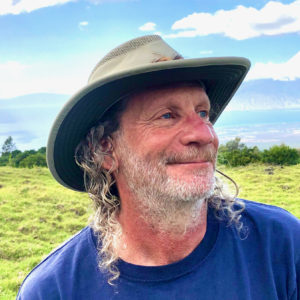
Larry Hunter is a Professor of Pharmacology at the University of Colorado Anschutz School of Medicine.
He is widely recognized as one of the founders of bioinformatics; he served as the first President of the International Society for Computational Biology (ISCB), and created several of the most important conferences in the field, including ISMB, PSB and VizBi. Hunter’s research interests span a wide range of areas, from cognitive science to rational drug design. He has published more than 100 scientific papers, holds two patents and has been elected a fellow of both the ISCB and the American College of Medical Informatics. His primary focus recently has been the integration of natural language processing, knowledge representation, machine learning and advanced visualization techniques to address challenges in interpreting data generated by high throughput molecular biology.
He received a PhD in computer science from Yale University in 1989, and then joined the National Institutes of Health as a staff scientist, first at the National Library of Medicine and then at the National Cancer Institute, before coming to Colorado in 2000.